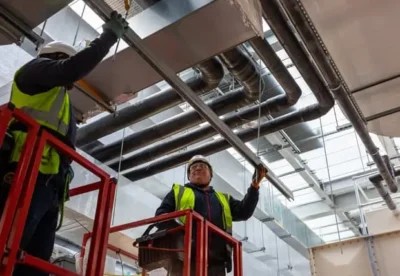Retention bonuses for senior managers below director level, salary increases for others, and a fee of £750 000 a year for the interim CEO, higher than his predecessor’s salary, were all agreed by the remuneration committee.
MPs investigating Carillion’s collapse published fresh evidence on Monday showing how Carillion sought to boost and protect the rewards for its top executives as its finances deteriorated.
Acting CEO Keith Cochcrane wrote to selected senior staff: “As you know, you are part of the team supporting the various projects we have underway at the moment that are critical to our success in 2017 and the business plan period up to 2019.
“We have a particularly challenging period to get through and your contribution is essential. With that in mind, I would like to invite you to participate in a retention bonus that will allow us to be assured of your services until at least the end of June 2018 and reward you for your contribution between now and then.
“These arrangements relate to a very limited group of people and should therefore not be discussed with anyone other than me.”
Fresh evidence also reveals that shareholders, including BlackRock, sought to limit the level of bonuses paid to board directors in 2016.
An attempt by Carillion’s board to increase the maximum bonus level to 150% – although they promised not to use the maximum possible amount – was met with resistance, forcing the company to back down to 100% of salary maximum bonus pay-out.
MPs also criticised bosses’ contracts, which make it difficult to claw back their bonuses for any wrongdoing.
The joint committee said that the latest papers seemed to reinforce, the opinion of Amra Balic, Head of Stewardship at BlackRock, that Carillion’s board was more concerned with “how to remunerate executives rather than what was going on with the business”
Frank Field MP, Chair of the Pensions Committee, said: “It’s greed on stilts, pure and simple.”
Rachel Reeves, chair of the Business, Energy and Industrial Strategy Select Committee, said: “These RemCo papers are further evidence that when the walls were falling down around them, Carillion bosses were focussed on their own pay packets rather than their obligation to address the company’s deteriorating balance sheets.
“While these directors could still walk off with bonuses intact, workers were left fearing for their jobs and suppliers faced ruin. Carillion had a notorious reputation for late payments to suppliers.
“But while suppliers were waiting up to 120 days to be paid, Carillion directors were doing their upmost to ensure there was no impediment to their receipt of fat pay and bonuses. Finally, when even the Carillion RemCo considered asking for directors to return their bonuses, the system and culture was so dysfunctional, and the terms and clawback provisions so weak, that even this meek step was ruled out”.























































